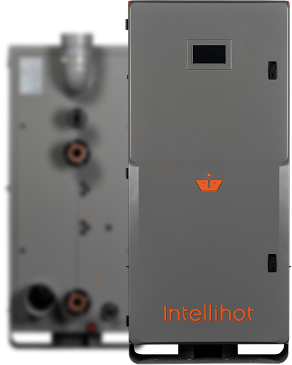

Perfecting the hot water requirements at a restaurant can be tricky. Restaurants need hot water for cooking, sanitation, cleaning dishes and several other functions. There are regulatory compliances that need to be followed and regular maintenance to be scheduled. Despite that, it is common for restaurant owners to suffer nightmares about flooding or a forced shut down due to a malfunctioning water heater. It is natural to have questions like “Are Tankless Water Heaters Recommended for Restaurants?” Here, you can find answers to some of the most common questions about water heating systems in restaurants.
Tank-style water heaters have been around for ages. And that is the number one reason for restaurant owners to be hesitant about change. However, it is a well-established fact that tankless water heaters are the better choice for restaurants. The core difference between the two is that tankless water heaters heat water on demand rather than storing hot water in a tank. Here is why tankless water heaters are better suited for restaurants:
It’s a Sunday and you have busy dinner service. Having uninterrupted hot water is crucial. In such a scenario, a poorly sized water heater can make a restaurant run into some serious challenges.
However, a common misconception is that a water heater’s capacity revolves around a single function. It is vital to know about a water heater’s capacity and recovery rate.
A water heater’s capacity usually determines how much hot water a tank-style heater can provide instantly at any time. It is measured in gallons since it is merely a reflection of the number of gallons a tank-style water heater can hold. This is the amount of hot water that your tank-style water heater can provide instantly.
A water heater’s recovery rate, however, is probably more crucial for restaurants. It usually determines how quickly a water heater can heat water. Hence, if a tank-style water heater’s storage tank runs out of water, the recovery rate determines how quickly the heater can refill its tank with hot water. On a busy service, recovery rate is what most restaurant owners should be concerned with.
For example, if a restaurant has a tank-style water heater which runs out hot water in its tank during a busy period, there might be a significant delay in the restaurant getting hot water if the water heater has a low recovery rate.
What happens to capacity in tankless water heaters? Since tankless water heaters do not store hot water, they do not function on the metric of capacity. However, most tankless water heaters are designed with a high recovery rate so that they can heat large amounts of water instantaneously without having to refill a storage tank. A more appropriate metric when it comes to tankless water heaters is the flow rate: a measure of the amount of water that a tankless water heater can move in a given time frame.
Capacity (Tank-style): A reflection of the number of gallons a tank-style water heater can hold.
Recovery Rate (tank-style): determines how quickly a water heater can refill its tank with hot water
Flow Rate (tankless): a measure of the amount of water that a tankless water heater can move in a given time frame.

Understanding the right size of tankless water heater for your restaurant can be complicated if you do not possess some technical knowledge, similar to tank-styled heaters. You would want to avoid a tankless heater that cannot handle your specific load. On the other hand, purchasing a heater that is significantly more powerful would result in excess costs and wasted space since more powerful water heaters tend to take up more space.
You can use our water heater sizing calculator to get an accurate snapshot of your hot water requirements. You will get an instant, personalized report containing multiple options of Intellihot’s products that can serve your restaurant’s needs.
All you need to do is a fill a basic form with information about your restaurant’s physical space like the number of sinks and washrooms. Our accurate calculator will generate a guaranteed and detailed report that is personalized to your query. If our estimates are wrong, we will pay for any additional equipment. Below are some snapshots of our detailed sizing results.
How Can I Avoid A Water Heater Flooding My Restaurant?
Short answer: Go Tankless.
Tankless water heaters do not store water, thereby mitigating the risk of flooding. As a matter of fact, Intellihot was conceptualized when our founder and CEO, Sridhar Deivasigamani’s basement was flooded by a traditional tank-style water heater.


2900 W Main St.,
Galesburg, IL 61401
General: 1-877-835-1705
Product Support (24/7): 1-866-692-6791
